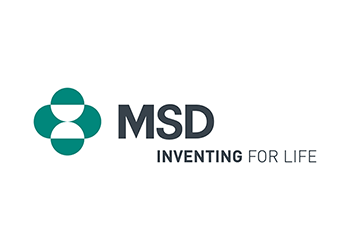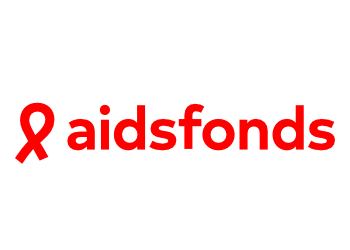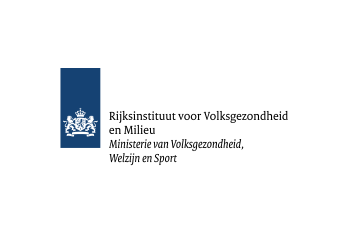HIV doesn’t stop you leading a long and healthy life. It is, and always will be, important to go to the hospital for check-ups, even though you don't feel sick. So you can start your medication in time and the HIV doctor can monitor whether the medication is working, and not giving side effects.
In brief:
- You are treated for HIV at an HIV treatment centre
- Usually you have an appointment with an HIV doctor and/or nurse twice a year
- Blood tests are usually done twice a year
- You pick up your medication from the pharmacy every three months
- Use this link (in Dutch) to let us know what you think of your hospital, doctor, nurse, or pharmacy.
HIV treatment centre
There are HIV treatment centres in many cities in the Netherlands (24 in total and 4 children’s HIV treatment centres). The check-up is normally once every six months. First you get a blood test, and you go to see the doctor a few weeks later. You are free to make your own choice of hospital and doctor. Most people choose the nearest hospital. You can choose a regular hospital, which is often smaller and closer by, or a teaching hospital (academisch ziekenhuis), which is affiliated to a university. A teaching hospital is often a bit larger and they do more research into new medicines.
At the hospital, you have an appointment with the internist who specialises in HIV. You can also get support from an HIV nurse or a nurse specialist. If you have just heard that you have HIV, or if you are starting with HIV medication; switching to a different medicine; or have health problems, you might have to go to the hospital more often. The HIV doctor and HIV nurse will tell you all about HIV treatment.
Also, most HIV treatment centres organise information days or get-togethers once in a while. It may be worth it to go there: you can learn more about HIV, ask questions, or meet other people with HIV. Ask your HIV nurse about it.
Specialised HIV doctor
The internist is your primary doctor. An HIV treating physician is a doctor who specialises in internal medicine and infectious diseases. An HIV treating physician treats people with HIV, but also people with diabetes, thyroid problems or hepatitis. In general, the doctor is the one who discusses blood test results with you. Also, switching to a different medication is usually handled by the HIV doctor.
Blood tests
Blood tests are important when making the decision to start HIV medication. These blood tests stay important, even when you have been taking HIV medication for a long time. They indicate whether the treatment is working. It's about the number of CD4 cells and the viral load (the amount of HIV in the blood). The medication you take ends up in your blood. The blood distributes the active substances throughout the rest of your body. It transports them to the various cells and organs.
Viral load
The viral load is the amount of virus in the blood, and it is monitored twice a year. This assessment reveals more about your immune responses than the number of CD4 cells. Even before you start taking HIV medicine, it’s still important to know how high your viral load is. Low, medium, high or very high? After you’ve been taking HIV medication for a while, there is only one interesting question: is the viral load detectable or not? Read more here about the viral load.
Medication
People with HIV used to take several pills a day with two or three different active ingredients. This principle was called combination therapy or HAART (highly active antiretroviral therapy). The invention of the combination therapy in 1996 meant a revolution in the treatment of HIV. Since the introduction of combination therapy, HIV is a chronic condition in most cases, without many complications and with a normal life expectancy. Nowadays, most people with HIV only take one pill a day, and we know that sometimes two active ingredients are enough (instead of three). Read more here about the different types of HIV medication.
It’s especially important to take your HIV medication consistently and at set times of the day. Otherwise you risk resistance. This means the medication will no longer work. Then you will have to switch to another HIV medication. Even when you are not sick, you must stick to the therapy schedule. In the first few weeks it will be difficult to keep to a fixed schedule, but after that you develop a kind of routine for taking the pills. Some people use devices, such as a pill box with the correct dosage, or an alarm clock to remind you to take the pills. When you take HIV medication, your viral load drops after a few months and eventually becomes unmeasurable. With a suppressed viral load, you can no longer pass on the virus to others: as long as you keep taking the medication consistently and on time.
Pharmacy
When you start taking HIV medicine, you become a long-term, regular customer at the pharmacy. Ask at the pharmacy if they are familiar with HIV medication. As a rule, you collect your medication there once every three months. If the pharmacy doesn’t give you a three-month supply of medication, call the Servicepunt (Service Desk) at the Hiv Vereniging : 020 - 689 25 77 – Mondays, Tuesdays and Thursdays, from 14.00 to 22.00.
The pharmacy's most important responsibilities in your treatment are:
Providing your HIV medication on time
It can happen that you find out at the last minute that you have run out of pills. It is very unwise to stop for a few days or to temporarily take one HIV pill and not the other, just because your pharmacy can't deliver the pills on time. Try to avoid this by going to the pharmacy in time. If you do go there at the last minute, tell them you must get the medication on time, either through an urgent delivery by the wholesaler or manufacturer; or by another pharmacy, such as the hospital pharmacy.
General practitioner
The role played by the general practitioner (GP) can vary a lot. If you have a health problem, it is not always clear whether the problem has to do with HIV, with your medication or with something unrelated. Some HIV doctors and nurses watch out for other symptoms and write prescriptions for them. There are also HIV doctors and nurses who will refer you to your GP. Some GPs are familiar with HIV and often have several HIV patients. And for some GPs, you are the only HIV patient. Discuss it with your GP and make an informed choice.
Share your experience
You can share your experiences on Zorgkaart Nederland (in Dutch), e.g. with your hospital, doctor, nurse or pharmacy. By doing so, you help other people to choose a healthcare provider. This website can also help you to choose a pharmacy. It is useful to know in advance if others encounter problems with the delivery of medication. You might prefer to choose another pharmacy. Of course, you could compliment your healthcare provider in person if you think he or she provides good care. Read more here on complaints about healthcare.
How HIV care is organised in the Netherlands
There is a complex network of doctors, specialists and institutions working behind the scenes on HIV care in the Netherlands. There is a lot of intensive consultation about HIV care. The NVHB (The Dutch Association of HIV treating physicians) works together with, and is advised by, health insurers; the Hiv Vereniging; Soa Aids Nederland (STI/AIDS the Netherlands); the RIVM (National Institute for Public Health and the Environment); the NHG (The Dutch College of General Practitioners); GGD (municipal health service)and the VWS (Ministry of Health, Welfare and Sport). The V&VN-VCH (HIV nurses) also play an important role in securing and certifying the quality of HIV care. SHM ( HIV Monitoring Foundation) collects anonymous data on everyone with HIV and brings out a yearly report on the latest figures for HIV and AIDS in the Netherlands. The Health Minister and the Lower House use this to determine policy.
Guidelines
The NVHB sets the guidelines for HIV treatment and regularly updates them, based on the latest scientific insights. In addition, the NVHB organises conferences and meetings to keep each other, other doctors and policymakers informed of the latest medical developments in the field of HIV and AIDS. An HIV treatment centre must meet a large number of conditions: sufficient expertise and experience in the field of HIV, the involvement of patients, regular consultation with the Hiv Vereniging, and a clear division of duties between HIV doctor and HIV nurse.









